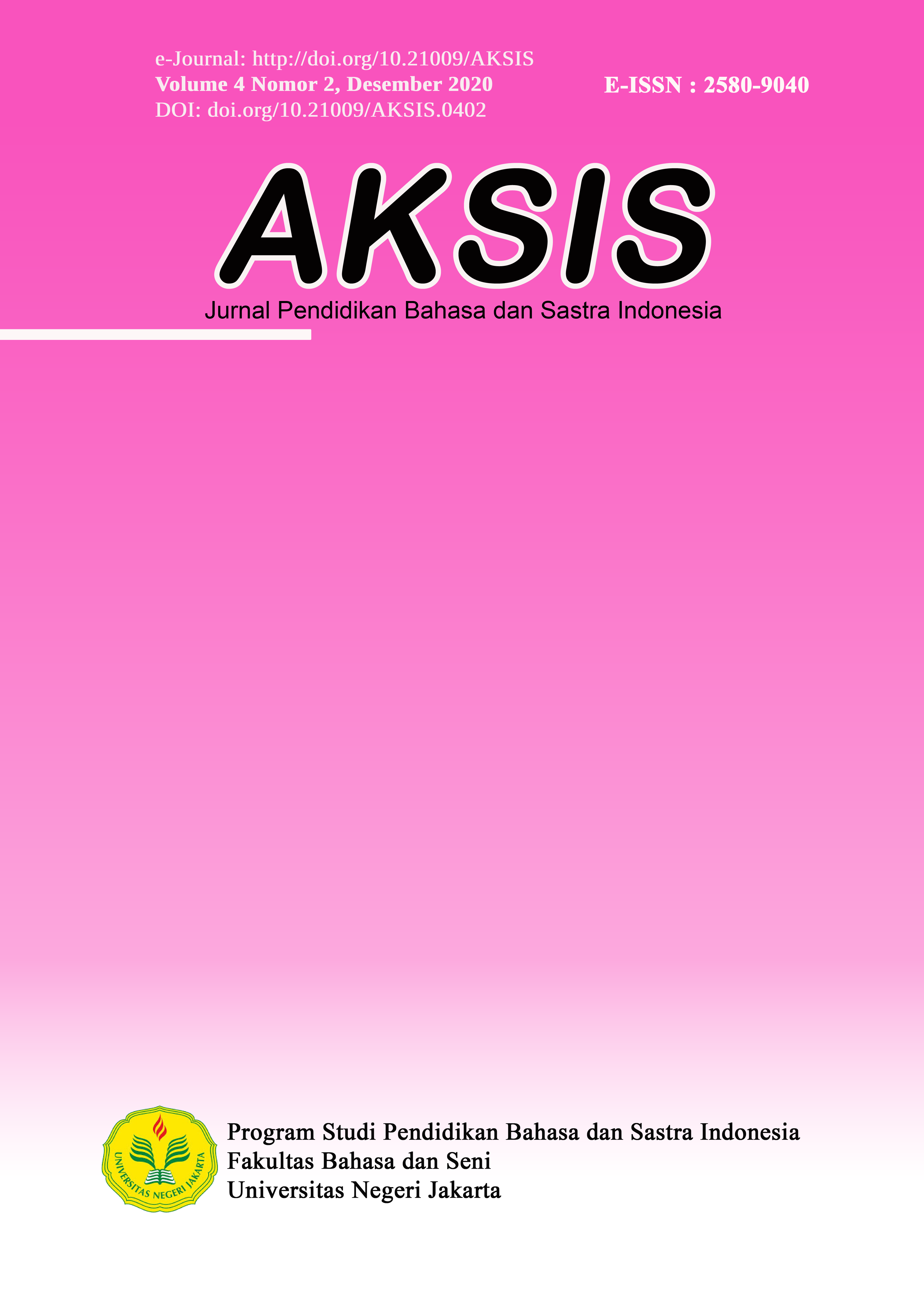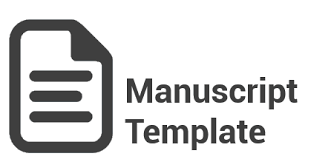The Struggle of Woman in Novel Merry Riana: Mimpi Sejuta Dolar by Alberthiene Endah: Existensialist Feminism Studies
DOI:
https://doi.org/10.21009/AKSIS.040217Keywords:
woman, novel, existensialist feminismAbstract
Literary work always presents variety of problem from the characters as roles in life that create the movement of a story, either male or female. This study focuses on the role of women who struggling to their lives so the readers can get different meanings and perspectives from female characters who are not victims of discrimination but as motivators to create their existence. The object of this research is a novel entitled Merry Riana: A Million Dollar Dream by Alberthiene Endah. This research employs qualitative method namely content analysis. The procedure in this research are intensive reading, identification, analysis, presentation, and conclusion. The focus of research on existentialist feminism are (1) women can work; (2) women can become intellectuals; (3) women can achieve socialist transformation; and (4) women can reject their motherhood nature. The result of this research is that the figure of a woman has the right to do or fight for something that is equal to men. The impact of the realization of ideals is to have a better life and give positive behavior.
Keywords: woman, novel, existensialist feminism
References
Beauvoir. (1956). The Second Sex. London: Lowe and Bryligne.
Beauvoir. (1989). Second Sex, Fakta, dan Mitos. Surabaya: Pustaka Promothea.
Culler, J. (1977). Structuralist Poetics. London: Rouledge & Kegan Paul.
Endah, A. (2011). Merry Riana Mimpi Sejuta Dolar.Jakarta: Gramedia Pustaka Utama.
Fraenkel, P.J. & Wallen N. E. (2008). How to Design and Evaluate Research in Education. New York: McGraw-Hill Companies, Inc.
Hayati, Y. (2012). Dunia Perempuan dalam Karya Sastra Perempuan Indonesia.
Mayring, P. (2000). Qualitative Content Analysis. FQS Forum: Qualitative Social Research, volume 1 nomor 2, June 2000). Dapat dilihat pada http://www.qualitative-research.net/index.php/fqs/article/viewArticle/1089/2385. Di akses tanggal 20 Desember 2020.
Moleong, L. J. (2000). Metode Penelitian Kualitatif. Bandung, PT. Remaja Rosdakarya.
Nuraeni, Y., & Septiaji, A. (2019). Tokoh-Tokoh Perempuan Peduli Lingkungan dalam Novel Partikel Karya Dee Lestari: Pendekatan Ekofeminisme. Diglosia: Jurnal Pendidikan, Kebahasaan, dan Kesusastraan Indonesia, 3(2).
Rachmawati, D. E., & Ravitasari, R. A. (2019). Feminism Values in Novel Merry Riana: Mimpi Sejuta Dollar by Albhertiene Endah. ALAYASASTRA, 15(2), 127-140.
Septiaji, A., Zuriyati, Z., & Rahmat, A. (2020). Women’s Life in Indonesian Contemporary Short Stories: A Study of Ecofeminism Transformative. Indonesian Language Education and Literature, 5(2), 185-197.
Showalter, E. (1985). The New Feminist Criticism. New York: Pantheon Books.
Sugihastuti & Septiawan, I. H. (2007). Gender dan Inferioritas Perempuan: Prakttik Kritik Sastra Feminis. Yogyakarta: Pustaka Pelajar.
Sugihastuti & Suharto. (2002). Kritik Satra Feminis: Teori dan Aplikasinya.Yogyakarta: Pustaka Pelajar.
Sugihastuti. (2011). Teori Apresiasi Sastra. Yogyakarta: Pustaka Pelajar.
Teew, A. (2013). Sastra dan Ilmu Sastra. Jakarta: Pustaka Jaya.
Tong, R. P. (2010). Feminist Thought.Yogyakarta: Jalasutra.






